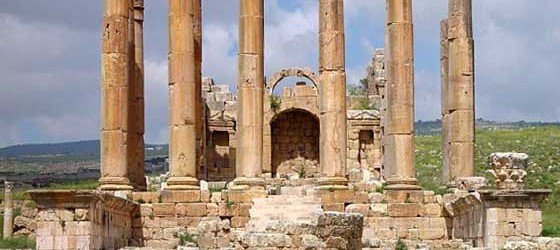If I say Turkey, the first thing that comes to most peoples’ minds are the buzzwords Middle East, Muslim, and headscarves. For those slightly more politically minded, its “Armenian genocide”, Cypriot stalemate, or lack of European Union-ness. Turkey is profoundly misunderstood or simply not understood in many ways, but there are compelling reasons why it should be praised and proud of its recently articulated commitment to preserve Judeo-Christian religious heritage sites. No matter what the current debate on Turkey’s religious-influenced conflicts with neighbors may be, Turkey has determined that its in-country religious history is worth preserving, in tourist and very much non-tourist destinations alike. And that is something not many Islamic or predominantly religiously homogenous nations can say for themselves.
Turkey is home to a vast array of biblical sites that dot its countryside from the farthest cities in the East to the farthest in the West. Saint Nicholas, Santa Claus as we know him, was born in Myraon the Mediterranean coast. Noah’s Ark, though never found, is believed to have landed atop Mount Ararat in central Eastern Turkey. Both Saints Peter and Paul (born in Tarsus, Turkey) walked across the Southern coast of Turkey as missionaries spreading the first words of Christianity. Mary in her final days was taken to a rest home on the Aegean, remnants of which still exist today. The Council of Nicaea, which formed the most definitive version of the New Testament, took place in the same town where Alexander the Great brought his armies to cross the threshold of the east and expand his empire, a now sleepy village in the north west of Turkey. One of the oldest churches dating from biblical times sits in Hatay (Antakya), on the border near Syria. There, historians believe the community referred to themselves using the title Christians for the first time.
Beyond biblical enchantments there is a never-ending list of both more modern and ancient religious sites and historical events that fall within the boundaries of Turkey. From Greek and Roman temples including the Temple of Artemis, one of the seven wonders of the Ancient World, to the Chora (Kariye) church, considered to have the best preserved Byzantine Biblical mosaics in the world, Turkey does not disappoint. Some sites even stack religions-note the many Greek polytheist temples turned churches, churches turned mosques, and there’s even a site with Zoroastrian ties near Kars turned Armenian Christian center of trade and worship, Ani.
Not only is Turkey blessed to have this cornucopia of biblical religious sites, it is a country that has realized the potential of preserving such wonders for all of humanity and has entered into restoration projects with international organizations and private foundations with gusto. According to a Hurriyet Daily article, since 2002 the Turkish government has spent nearly 10 million USD on renovating nearly 70 churches and synagogues, including those of minority groups such as Armenians, Greek Orthodox, various Jewish sects, and Georgians. Organizations such as UNESCO and the World Monument Fund are matching government grants and working closely with local Turkish officials to ensure the timely and professional completion of these projects. And these sites are not all simply relics or heritage sites; many of them are active worship sites used by minorities in Turkey today, preserving religious traditions that literally date back to the biblical era.
Of course this story is not perfect; the international community had previously criticized Turkey’s lack of funding for minority places of worship and calls for increased funding above the current millions abound. Given the number of sites to be managed, the number of diverse minorities present or once present on Turkish soil, and the disappearing numbers of minorities actively practicing in Turkey, the current support for preservation is definitely on the right track. It should be duly noted that minority sites in several other countries-Afghanistan, Egypt, Mali, Iraq, Lebanon, and most recently Syria, have not fared as well given recent government transitions and, obviously, war wounds. While heated debates on Turkish political policy vis a vis its former Ottoman-controlled neighbors may continue indefinitely, it’s good to know at least that multi-religious pieces of history will be open to visitors for just as long.
Leslie ESBROOK
Juris Doctor Candidate, Yale Law School 2015
Fulbright Scholar 2010-2012



















































